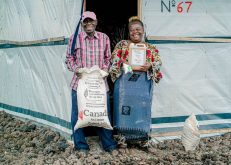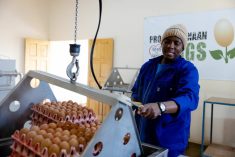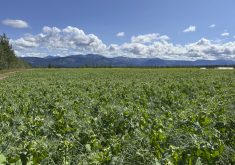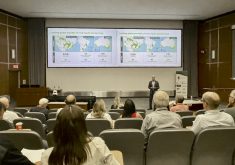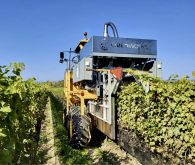Glacier FarmMedia – The not so easy task of figuring out the best policy to sustain Canada’s food systems on a domestic and international scale recently took a step forward in Ottawa.
In gathering more than 200 people involved in every aspect of the agri-food industry — producers, processors, manufacturers, policy makers — Canada 2020’s National Forum on Agri-Food Nov. 6 and 7 dispensed with individual silos and put every member of the value chain at the same table.
Why it matters: If all players in the agri-food sector can agree on certain key issues, the industry as a whole, including farmers and processors, will be better situated to draw on accepted best practices and better able to market those advantages in international markets.
Read Also
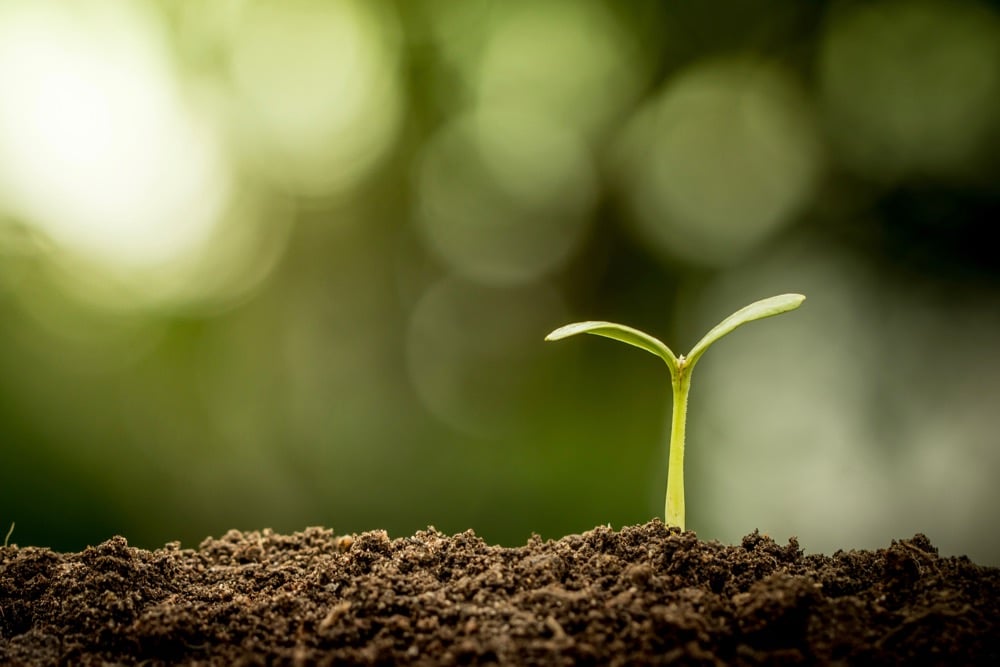
Ontario’s agri-food sector sets sights on future with Agri-Food 2050 initiative
The first-ever Agri Food 2050, a one-day industry event dedicated to envisioning the future of food and farming in Ontario,…
The core issue is how to best document, and then leverage internationally, the positive approaches to issues such as sustainability already happening within the industry. There is also a general acceptance of the need to continuously improve and adapt.
But it’s a really big table, with a stream of grievances being aired.
An almost comically nuanced debate broke out the first morning on the mere definition of sustainability.
Some pointed to the traditional pillars — economic, social and environmental — associated with the word. Others argued it is more wholesome than simple pillars. There was an argument made that sustainability doesn’t realistically take economics into account. The debate here alone could have gone on for days.
What is clear: The agri-food sector needs to reach some agreement on which metrics or benchmarks should be prioritized to best assess the performance of the industry. Then it needs to be rolled out across the sector.
It’s expensive and time-consuming to create and adopt new regulations; there already are complaints of over-regulation. Making an investment to ensure a clean supply chain with strong traceability from farm to table is also costly and time-consuming.
The science behind best practices is changing rapidly. The line between consumer sentiment of what is safe and healthy is too often blurred with the science of what is safe and healthy.
How best to manage food is a massive question alone, made no easier in a country lacking true food security (particularly in urban food deserts and remote northern communities) that simultaneously exports about half of the food it produces. Another example: food waste and obesity continue to be legitimate concerns.
Efforts to improve are hampered by the global chaos of present day international trade. Food has been weaponized by tariffs in a global trade war that appears long lasting. Rules are not being followed and there is little evidence of political will to do anything meaningful to fix this.
Certainly it is not being given the attention it deserves by federal politicians in this country. Look no further than the lack of debate on the issue during Canada’s recent federal election.
Getting everyone in the same room to talk about this seemingly endless list of challenges could set a course for success. By putting, for example, representatives from one of Canada’s major organic food suppliers in the same room as crop protection representatives, there is little choice but for them to talk.
There’s also a distinct shift in the kinds of conversations taking place. People with decades of experience in the agri-food business recognize an evolution in how certain topics are being discussed.
Sustainability is a good example. The entire sector, investors included, recognize there is a more intense conversation unfolding around how best to partner long-term economic growth with practices that are good for people and the environment.
Where those conversations continue to go, and how they can help improve food systems on a domestic and international scale, will play out in the coming months, hopefully through the implementation of some tangible action plans.
At the very least, the fact these conversations are now happening signals progress. What remains to be seen is who outside the sector wants to listen.
Organizers of the Canada 2020 event plan to take their findings from the Ottawa forum and present them in early December.





